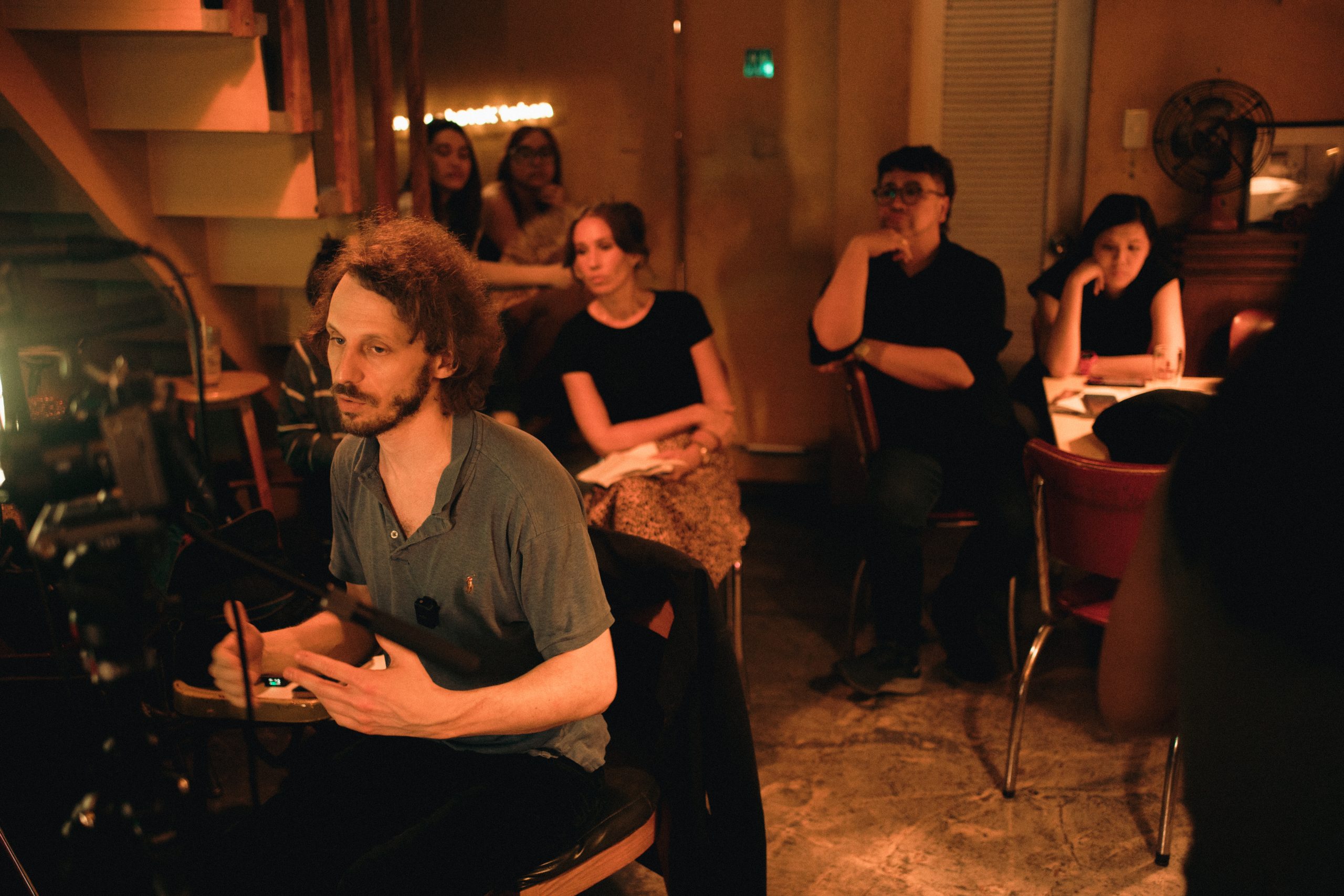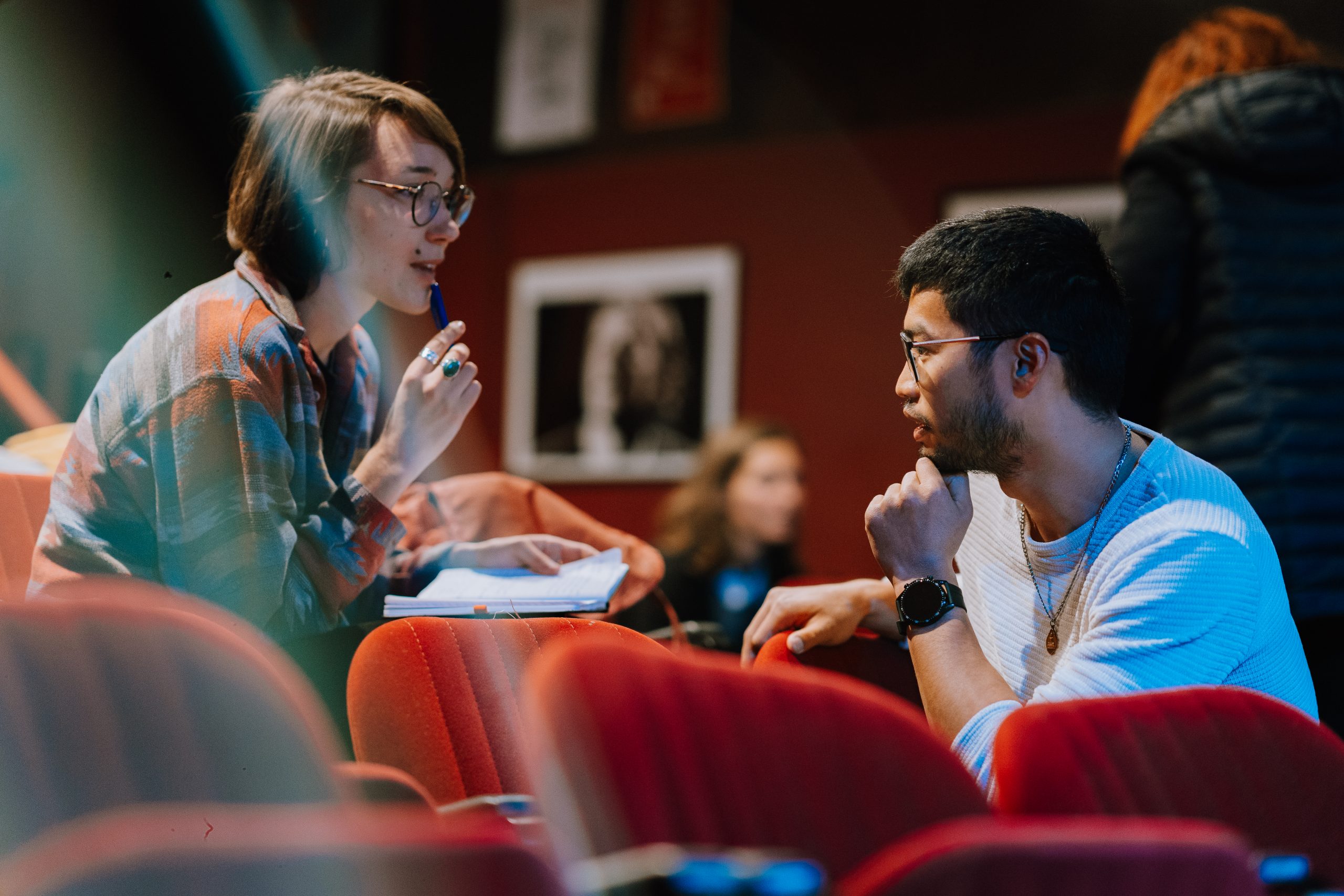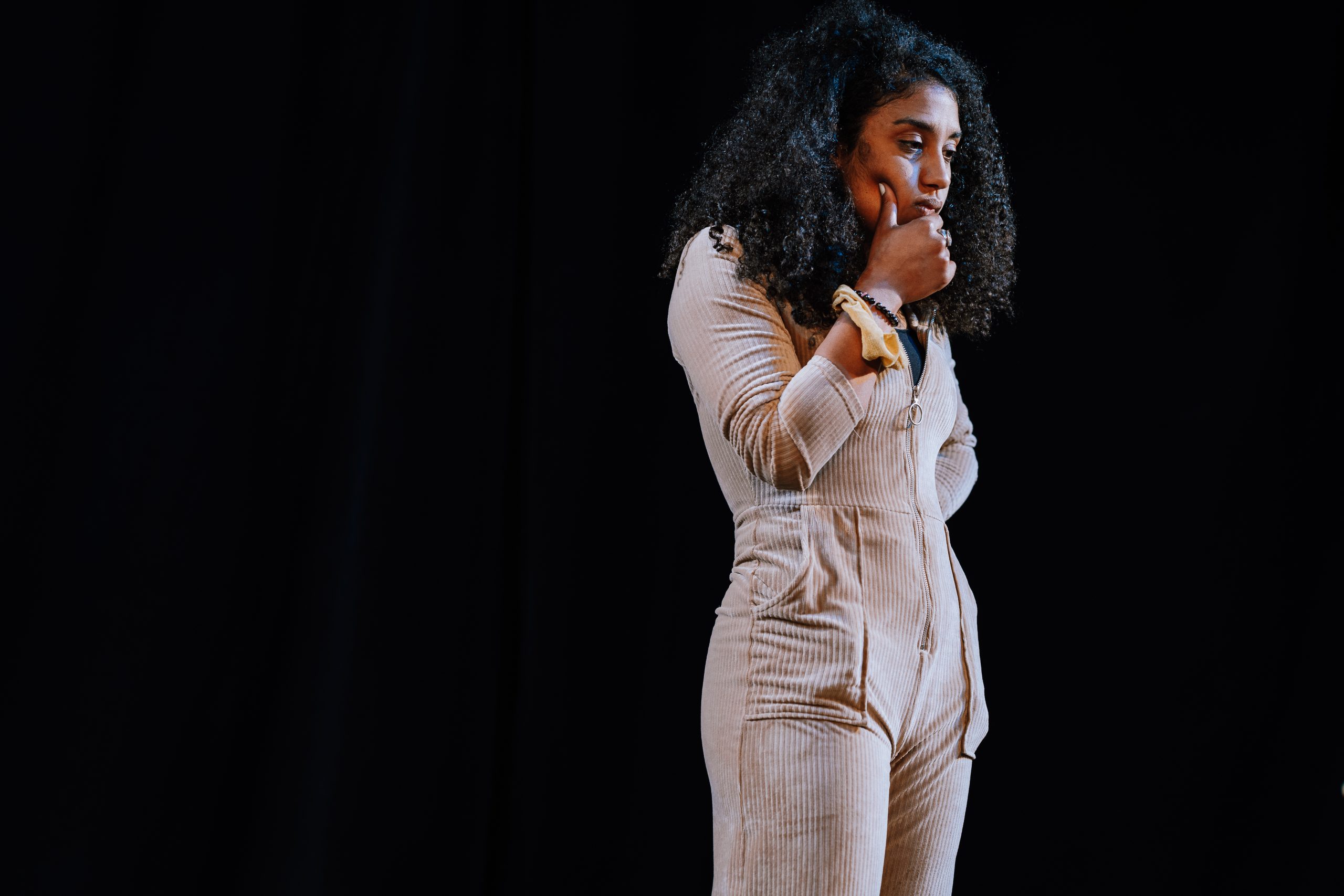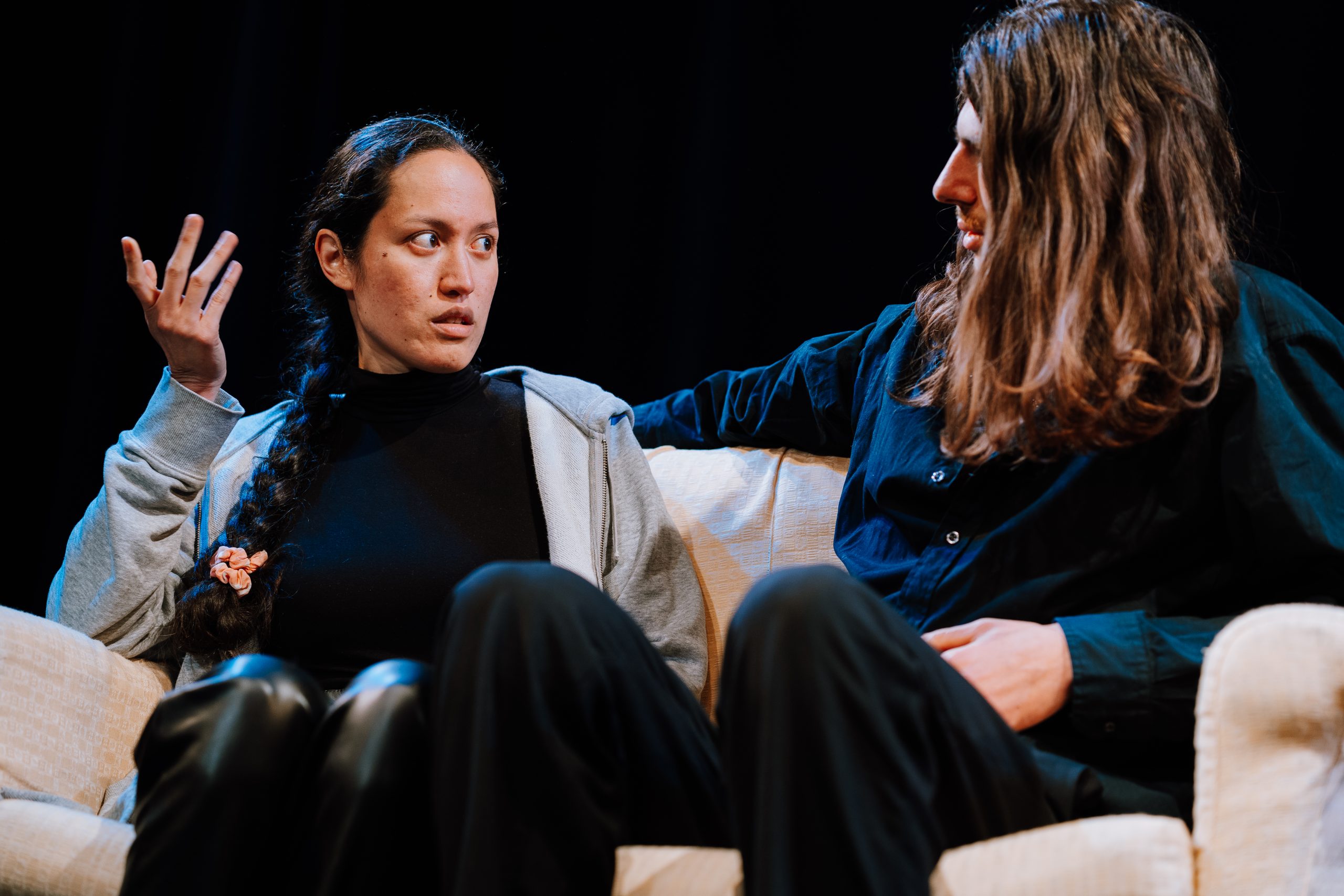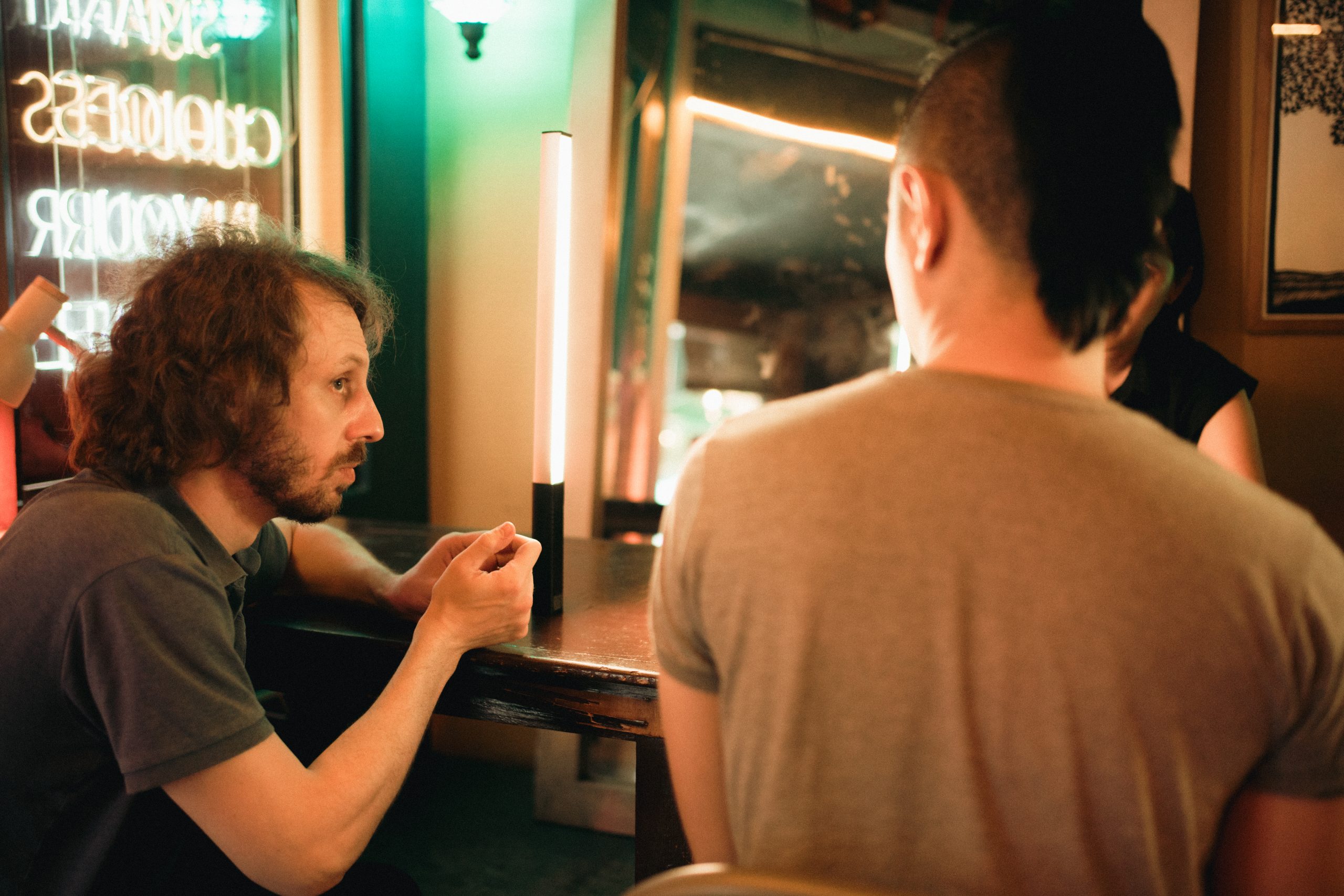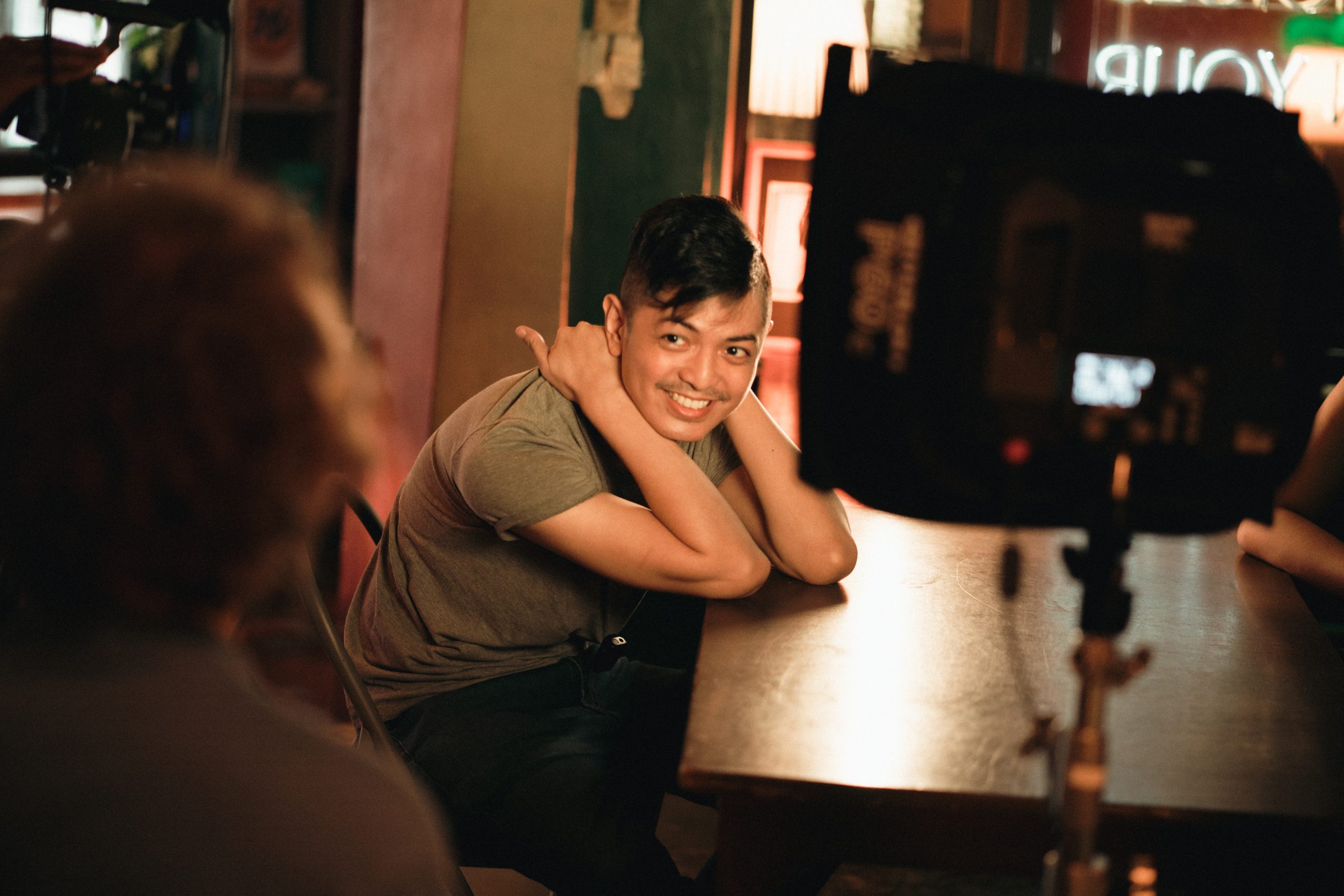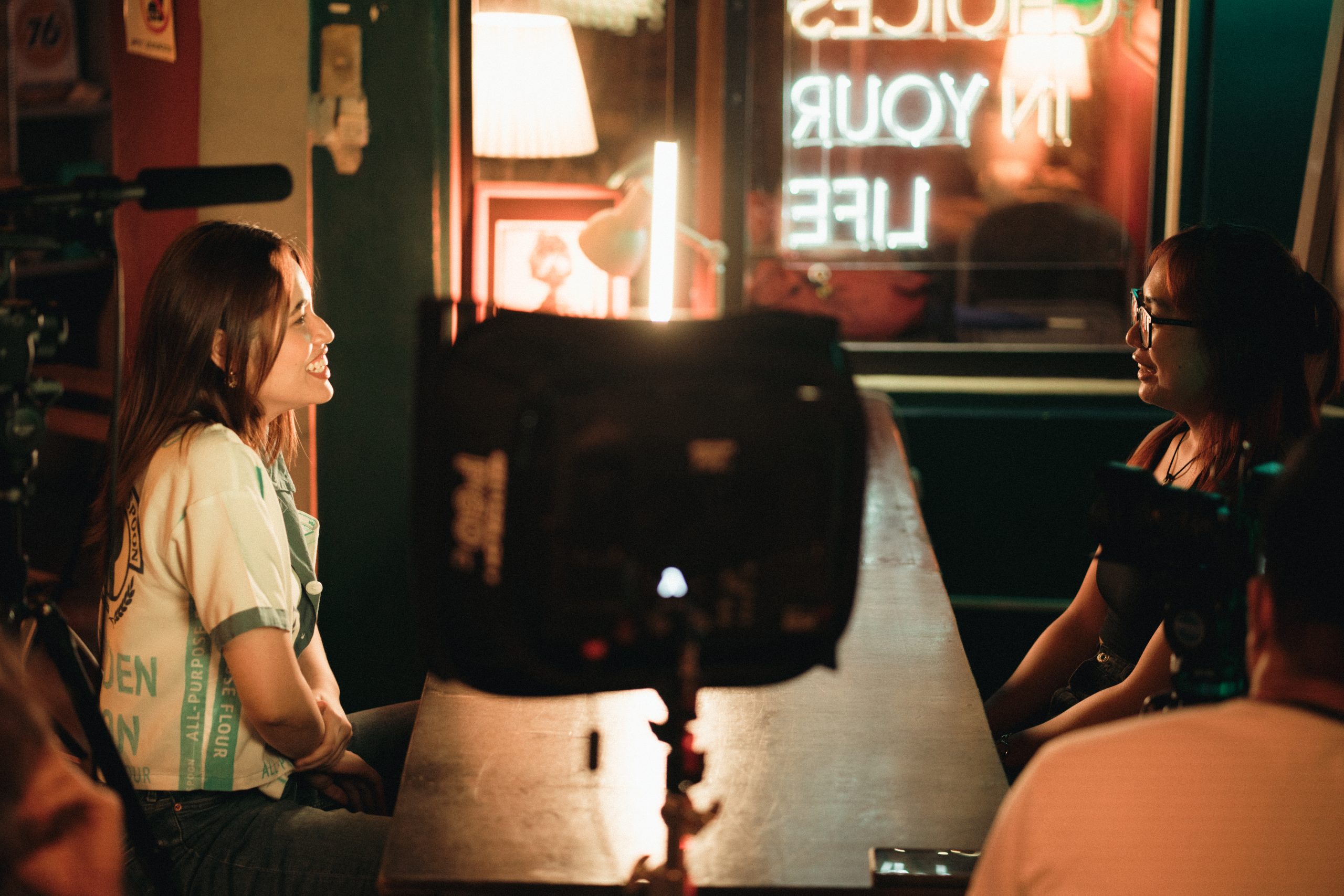Transcript of our podcast of the same name, to listen to on our Telegram Channel.
🔉
It’s been a long time since I’ve done a podcast. I’m going to do a quick little audio on the question of emotional desensitization and resensitization, which is a pretty fundamental subject, I think, for actors. At least in our approach.
The idea is that we support them in being readable while being observed. We start from certain observations, or presuppositions: an actor on stage has an evolutionary tendency to see stage fright, to feel judged, to potentially manipulate his experience. When we feel we’re being watched, we tend to act differently, to control our emotions in particular, to try to control the way our intentions are perceived by the audience, and so on. For evolutionary reasons: we don’t want to be judged by the group, we’re afraid of being socially excluded, and so on.
🎭 In the public eye: the control trap
So it’s all pretty clear. The question is: what do we do with it? An actor is on stage. What we do is start from there, to try and open up his emotional life on stage, to try and make it legible, rather than doing several things that we often do in other approaches. These approaches add control, or intermediate steps between his performance and the way he arrives on stage.
He arrives on stage: he has stage fright. He arrives on stage: he wants to play well. He’s afraid of doing badly, of being judged and so on. So he’s potentially a little paralyzed. He’s potentially a little in his head. Sometimes even in a kind of anxiety where there’s a blind spot, where he can’t see very clearly. And on top of that, in this state of panic sometimes, not very consciously, he wants to do something.
He wants to,
- Either to relax, so to do relaxation, things like that…
- There’s this technique that’s proposed to actors (Lee Strasberg, for example): we’ll do relaxation for an hour, followed by emotional preparation.
- That way, you arrive both relaxed and emotionally charged. You tell yourself it’s better than the alternative.
- Or you’ll tend to control your performance, overacting, trying out diction, preparing the way you say things in advance, preparing lines, etc. In short, the classic stuff. In short, the classic stuff.
⚙️ When technology adds friction
From my point of view, all these strategies add control. And as well as being a bit tedious, they add friction, a complicated intermediate step every time, which makes the process less fun, less fluid, longer, more laborious, etc.
So it’s not great. In a technique where there’s a lot of friction, where you have to spend your time “changing” before you can go on stage, you can’t commit quickly. On top of that, it has a second perverse effect: it robs the actor of his humanity, and robs his performance of what really touches us as an audience.
It’s something we do a lot in class. In Gestalt, we call it group intersubjectivity. We check with the group: were people paying attention during the exercise or not? It’s not about judging performance, it’s not about sharing tastes (“I like that”, “I liked it/not liked it”), but about saying: I was really attentive at this particular moment, and at other moments, my mind went elsewhere. It’s like at the theater: sometimes you’re thinking about something else, especially when the performances are a bit overplayed. When the actors are disengaged, we tend to daydream, to go off somewhere else, and then sometimes something brings us back.
It’s great feedback, because you don’t usually get it. Not a general “it was good/not good” feedback, but: “ok, I was very attentive at that moment”. And this sometimes corresponds to a moment when the person followed an exercise, a technique protocol, or was in a particular mood. It’s very instructive, validating and supportive. To be able to say: at that moment I left, at that moment I was very attentive. And to link it to ways of being in contact on stage. Rather than speculating on the “effect produced”.
We want something that’s as close to our humanity as possible. And so the question of awareness is very important. In Gestalt, we talk about the contact cycle: the very beginning is physical sensations. Being sensitized, as opposed to being desensitized. We want actors to be sensitized, associated with their bodies, ready to react to what’s happening to them in terms of impulses, emotions and so on.
🌱 When the body says what the mind hides: Radical Honesty and physical sensations
If it’s all mind over matter, all ideas, even though the actor may be in a sort of little dream like that, he may feel suggestible, a bit like in hypnosis. He may have the impression of being in a highly evocative trance state inside his mind. But in fact, he’s dissociated. He’s in his imagination. By definition, sensations are absent.
So the first stage of the work for us, which is both the first stage of the Gestalt contact cycle, and the beginning of the work on stage, is to make the actor aware of what’s happening to him. That’s why, in the Meisner technique, the first rehearsal exercise, whose function is to enable the actor to listen, not to be too much in his head, to have a form of spontaneity on stage which will then serve as a basis for improvisations, we really want this rehearsal to be sensitized.
That’s why, unlike other approaches, we don’t have strict, somewhat dogmatic rules like :
- “you always have to talk about what you see on the outside”,
- “never talk about yourself”, etc.
As in the approach derived from Gestalt and Ericksonian hypnosis called Radical Honesty (by Brad Blanton), we want to be able to share our physical sensations too. In particular.
Nor do we want to spend our time identifying our emotions: saying “I’m sad”, or telling the other person “you’re sad”. We really want everyone to be able to share their feelings as they happen, without manipulating them. These sensations are not open to debate: only the person concerned can say what he or she feels. You can’t tell someone “you’ve got ants in your arms”, but the person who has ants in their arms can share it immediately.
Sharing your feelings is the basis of Brad Blanton’s Radical Honesty work. It’s work that, as in this approach, allows us to create fuller relationships. And that’s also what we want to build in the improvisations: intimate, free relationships.
We say “radical” because it’s in the sense of root: the root of things. And the root of things is the body and physical sensations. So we want to start with physical sensations first, before projections, judgments or even superficial impulses.
🌀 Dissociation: the trap of imaginary discoveries, and anxious leaps forward
There is a whole body of work in Meisner that has been adapted, for example in the approach of Scott Williams (Impulse Company), who has truncated the Meisner technique enormously to focus on physical impulses. This is not uninteresting, but it often results in superficial impulses. They appear spontaneous, but in reality they are not rooted in the body.
For some anxious actors who practice this approach, it can even fuel anxiety: wanting to act all the time, without being truly aware. Because we’re not allowed to talk about ourselves, our attention is drawn outwards, away from what’s happening to us internally.
Conversely, in Gestalt, we can look at what happens to us in our experience, in our phenomenology. We can say:
- “I have a special feeling.”
- “I see I’m in my imagination.”
- “I also see something outside myself.”
Everything is welcome: inside, outside, activities (including imaginary ones). This ensures that we don’t exclude any part of our experience on the pretext of preserving a technical “purity” that is actually counter-productive. Often, it’s just easier for a teacher to manage a system with fewer variables. But it’s not useful for the actor.
🧘 Vipassana: scanning the unconscious body
So in any case, if we start from the principle that we want to resensitize the actor when he’s on stage, and also resensitize him in his interactions, there are really two main reasons why the actor may be in avoidance, a little paralyzed, etc. :
- Being on stage, having stage fright, being watched – these are already paralyzing, and can put him “in his head”.
- Being in contact with your partner.
Precisely because, by focusing his attention on the other person and trying to be free in the interaction, he comes face to face with his own interactional dynamics, his own areas of avoidance, stemming from trauma.
And there are several types of trauma. But there’s also education: the conditioning we’ve received, which acts as trauma through repetition. We’ve integrated prohibitions and so on. This creates blind spots in our experience, which could nevertheless emerge physically and emotionally.
Resensitizing ourselves to our experience therefore necessarily involves paying attention to the body. It’s by paying attention to our body that we come to be aware of it, even when at first there was a blind spot.
Typically, this is what we do in Vipassana. In a Vipassana meditation retreat, you spend ten hours a day for eleven days observing your sensations from head to toe. From day 4 onwards, you do this very tedious “body scan” all day long. And little by little, you become more aware of the surface of your body, then of your inner self. You get back in touch with your body.
The Vipassana approach has its advantages and disadvantages for the actor. But clearly, it has the advantage of resensitizing the body. Which, by the way, is not enough to unravel all traumas. But at least it allows you to be in touch with what’s happening physically, and not to be completely dissociated or desensitized.
Doing Vipassana can have other pitfalls if that’s all you do. But in any case, it’s a step. And it’s a good example of how, by simply putting your attention on it (“here, what do I feel in my body, right now?”) you can resensitize yourself. It could be becoming aware of a blurred area, dissociation, emptiness, tension, a strange tingling sensation, etc. Little by little, by being at peace with this, without forcing or overcoming the blockage, we become naturally resensitized.
And then, as a second step, telling your partner to his or her face feeds the relationship: “Facing you, right away, I feel like this.” It may or may not be related to him, it may or may not be caused by him, but we invest it in the relationship. And we say it in public too.
So we go through all these stages that enable us to assume what happens to us and get into the habit of sharing it, without filtering or invalidating it. It’s a very important step. And it’s important to differentiate it from what we call “desensitization”.
🌊 Sensitization vs desensitization: two opposing paths
In cognitive behavioral therapy, we often talk about desensitization: expanding your comfort zone. The idea is that we say to ourselves “something scares me, but if I keep going there, I’ll get used to it.” You go in relaxed, thinking about something else, sometimes anesthetizing yourself (alcohol, relaxation, etc.). Little by little, you need fewer crutches because you’ve desensitized yourself. Stress diminishes.
The problem is that if you do this, you’re certainly less stressed, but you lose a large part of the experience. By definition, you become desensitized. And you end up with a somewhat anaesthetized relationship to the world.
So it depends on the individual, because people are more or less traumatized in some areas, more or less clear in others, with different personalities and emotional lives. But overall, everyone has areas that are more tense, opaque or avoided.
If we have this strategy of desensitization, of expanding our comfort zone by seeking to “get more and more comfortable”, we miss out on what we want to do as an actor. Even on a personal level, we miss out on our human experience. Rather than unfolding what’s happening to us, reintegrating something healthy, we navigate through reality half-anesthetized, controlling without being aware of it, being repressed, dissociated.
When in fact, with this simple principle, it seems to me that any stressful experience can become liberating. The fact of looking for things a little outside our comfort zone, uncomfortable things, and being aware of what’s happening to us physically, resensitizes us; not only with those areas, but with all the previous ones too. We resensitize ourselves in general.
🗝️ The discomfort that marks the unconscious
So: seek out discomfort, but not to overcome, control or desensitize it. Rather, to resensitize. This is a very good general model, which is more or less a Gestalt model. Even if Gestalt isn’t always as confrontational as what we do in class.
Because in class, we still want the actor to be legible, to explore intimate interactions, in a very framed way, with rules. We also want to raise the stakes, because the actor is going to play out situations where the characters have extraordinary stakes. So we want to raise our awareness by doing this.
Precisely, by getting in touch with these areas of discomfort, without forcing or going too fast. But by really paying attention to what’s happening to us physically.
🔍 Awareness of our avoidance zones
It’s also something you can do in life. Whenever we have a confronting experience, whether very positive or very negative, we can use it. In Gestalt, we’d talk about “healthy aggression” for the negative: conflict, setting limits, getting in touch with your anger. For the positive: intimacy, sexuality, affectivity, etc.
All the emotions linked to these two major areas of avoidance are a good general disposition for the actor to maintain, in his life. Recognize: “I’ve just been through something difficult.” And instead of trying to resolve it, rationalize it, find a justification, win the interaction, think about something else or distract yourself: take the time to be in touch with what’s happening.
Including acknowledging, “Here, I catch myself trying to have a debate in my head, trying to solve, thinking about something else…” And asking yourself: “How do I look physically?”
Pay attention to sensations, breathing, general state. Stay in touch without trying to solve or change. It’s anawareness approach, as in John O’Stevens’ Awareness, a great exercise book. Exactly that: staying in touch.
🕵️ Staying in touch with questions of the body: Letters to a young poet… of the senses
As Rilke says in Letters to a Young Poet (also on the reading list): stay in touch with questions, like open doors. Questions to which we don’t yet have the answer, but with which we stay in touch.
These “questions” can also be physical. You sense something uncomfortable, emotionally unclear, an inner conflict. Rather than rationalizing, choosing, clinging to it as if faced with something intolerable: see it as something physical, which will resolve itself naturally, but whose shape we observe.
It’s a Gestalt approach: Gestalt means “form”. We’re interested in the form that things take, including a blockage. Staying in touch with that form, rather than trying to fix it, resolve it, overcome it or rush it.
🎓 Conclusion
So there you have it. I don’t know how useful it is, but it seems to me that it’s a general model, both for the actor and for his life. Including when he does writing exercises, journaling, mapping his experience. To see how he is on a daily basis.
And in all the work we do on stage: rehearsals, improvisations, fantasies… It’s always based on the body, on experience.
Again, the body can be an impulse to retreat, to leave, or to become aware of dissociation. It’s not necessarily a visible “movement”, but something that happens to us and that we become aware of as taking shape, in the present moment. Rather than having ideas about it, trying to “play a goal”, to solve something.
The second step (which I haven’t mentioned here yet) is: once you’re readable on stage, see what observable form the behavior that emerges in an improvisation takes. And then, to be able to use that for the subtext of the scenes.
We have the text imposed by the author. But the way we’re going to say it, we want it to be legible, committed, uncontrolled. Eventually, we’ll be able to direct this behavior. But you can only direct it if you’ve first explored it in an uncontrolled way, really seeing the form it takes in the intermediate exercises.
Each time, we take the time to unfold the blurred areas, not to cheat.


